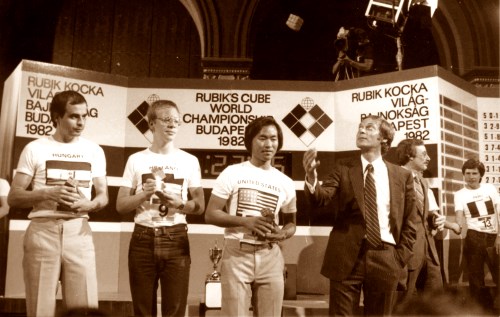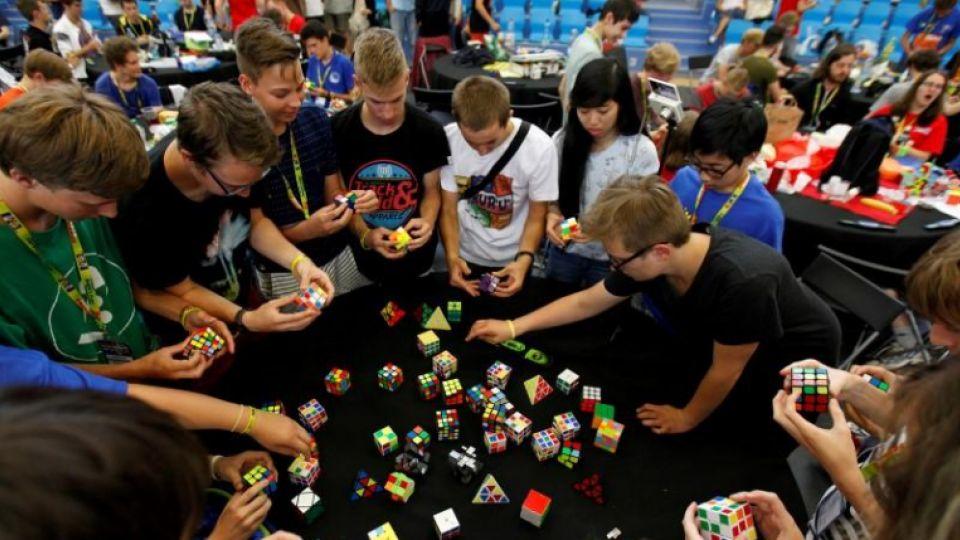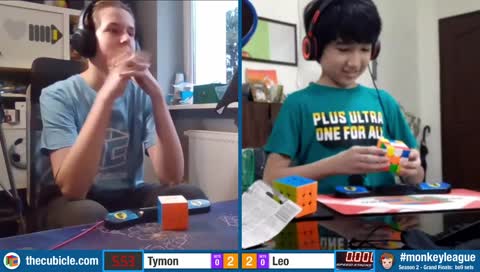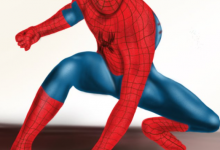
The World Cube Association (WCA) was created in 2004 by Ron Van Bruchem and Tyson Mao. Their aim was to expand the popularity of speedcubing Rubik’s cube across the globe and set a standard of competitions that should be run and delegated.
After the first Rubik’s Cube World Championship was a success, the idea to set up the World Cube Association was set in. Since there was nothing like a Rubik’s Cube competition ever before, there were quite a few challenges regarding the delegation and rule-following. However, today, there are many online platforms like Cubelelo that host online Cubing competitions and more. Let’s take a look at the WCA history.

History of the WCA
The first-ever World Championship of 1982 was held in Budapest. Minh Thai is a Vietnamese-American speedcuber. He was a 16-year-old high school student from Los Angeles when he won the first world championship on June 5, 1982, by solving the Rubik’s Cube in 22.95 seconds.
The World Cube Association started off slowly. They hosted another competition in 2003 after the August World Championship. Over time the number of competitions and events grew to a great extent. They then had 12 competitions across 6 different countries in 2004 to nearly 700 competitions in over 70 countries in 2016.
The WCA mission consists of its goal and spirit:
The WCA’s goal is to host more competition across more countries with more people and more fun, under fair and equal conditions.
The Spirit of the WCA is that people from all over the globe have fun together in a great atmosphere, help each other and behave sportsmanlike.
Events held at WCA : Rubik’s Cube Solver
Different competitions offer different combinations of 17 events. These events have official times that are recorded in a database that tracks both individual and average times for each competitor for each event. These are some of the events that are held at WCA competitions:
- The big NxNxN cubes events include the 2x2x2, 3x3x3, 4x4x4, 5x5x5, 6x6x6, and 7x7x7.
- There are events of variations of the 3×3 like one-handed solve, with feet, blindfolded, fewest move count.
- Blindfolded events include 3x3x3, 4x4x4, 5x5x5, and multiple 3×3 solved blindfolded.
- Side Events include solving twisty puzzles like square-1, Pyraminx, Rubik’s Clock, Megaminx, and Skewb.
Each competition is held in its own way ranging from single-day competitions to four-day World Championships holding multiple rounds of every event. Most of the countries that host the WCA hold several competitions each year across the country.
Every competition is regulated by assigned delegates who are members of the WCA. They ensure that all the regulations imposed by the WCA are carried out duly and properly. Competition cannot be affiliated with WCA if a delegate is not present.

Various competitions have different restrictions imposed on them based on the time and cost. There is most likely an entry fee which may vary depending on the number of events registered for. There are also varied cut-offs for each event:
- Hard Cut-off: A time limit within which you must solve a given puzzle. Failure to do so will result in the termination of the attempt.
- Soft Cut-off: A time limit that you can go on over but restricts the number of solves you can do officially.
The shift to online competition
The Pandemic has affected the WCA competitions to a great extent. Socializing through online competitions has become quite a challenge. Many speedcubers say that they go to competitions to meet other cubers rather than to compete. There were some competitions in early 2020, until the crackdown in March and April.
With some of the COVID-19 cases going down and the availability of the vaccine, cubing competitions in some countries have started again, with Feliks Zemdegs posting averages from his first competition after the lockdown.

On the other hand, many cubers have made most of the Pandemic by creating their own YouTube channels or even starting their own online competitions. A YouTuber, LaZer0MonKey, created the Monkey League, which added live cubing entertainment. Some of the top cubers like Feliks Zemdegs, Leo Borromeo, and Lucas Etter competed with each other.
The COVID-19 Pandemic did not make less cubing content. YouTubers and cubers have had more time to make videos, and many new channels have been created.
The Road Ahead for Rubik’s Cube
As of July 2020, more than 142,000 cubers from around the world have participated in WCA competitions. The Rubik’s World Cube Championship requires extremely careful planning by several volunteers, and financial commitment to reserve the venue and make preparations.
We can only hope that the WCA hosts its events again in all its glory and gives us the best of the best cubers! Until then, keep practicing!
About the author
Sharan Phillora
Writer at cubelelo.com. Her specialties include business research and content strategy. When she’s not working, she enjoys travel adventures and reading literary masterpieces.



